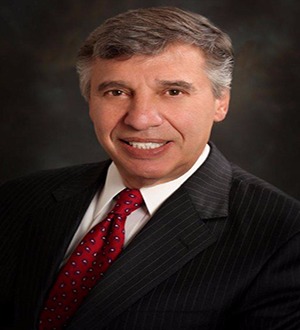In a recent Third Circuit workers’ compensation case, Guidroz v. Walmart Stores, Inc., the court ruled that a claimant’s age, experience, education, and ability to be retrained must be considered before modifying indemnity benefits.
GUIDROZ V. WALMART STORES, INC. – BACKGROUND
In the Third Circuit case of Guidroz v. Walmart Stores, Inc., Walmart appealed a ruling by the workers’ compensation court that they improperly reduced a claimant’s supplemental earning benefits based on jobs that fell within her physical capabilities, but not her requisite aptitude or transferable skills.
The claimant had been working as a bakery manager at the time of her accident. Following a course of treatment, the claimant was found capable of light duty work per a functional capacity evaluation that was approved by her treating physician. A vocational rehabilitation counselor was retained, who identified four jobs that fit within the claimant’s work restrictions. Walmart reduced the claimant’s supplemental earning benefits based on the post-accident wage earning capacity identified by the vocational rehabilitation counselor. The claimant appealed, asserting that none of the jobs identified were suitable.
CLAIMANT’S APPEAL TO THE WORKERS’ COMPENSATION COURT
At trial, the claimant testified that she failed two grades before reaching the ninth grade, and did not continue her education thereafter. The claimant did not have a GED, nor did she have any computer skills. Her job history included work as a baker, food service worker, and prep cook. She argued that the jobs identified by the vocational rehabilitation counselor all required computer skills or other expertise she did not have. Furthermore, the vocational rehabilitation counselor had not conducted any testing to identify the claimant’s functional limitations and relied on several flawed assumptions, including presuming a certain amount of transferable skills based on her title as a bakery manager.
The workers’ compensation judge agreed, finding that the modification of benefits was improper as the claimant did not have the aptitude or transferable skills to independently perform or be successfully trained for any of the jobs suggested by Walmart. Walmart appealed.
THIRD CIRCUIT’S RULING
In considering Walmart’s appeal, the Third Circuit noted that the claimant bears the initial burden of proving by a preponderance of the evidence that their injury resulted in an inability to earn at least 90% of their pre-injury wages in order to be entitled to supplemental earning benefits. Once the claimant’s burden is met, the burden shifts to the employer to prove 1) the existence of a suitable job within the claimant’s physical capabilities and within the claimant or employer’s geographic region; 2) the amount of wages an employee with claimant’s experience and training can be expected to earn in that job; and 3) an actual position available for that particular job. A “suitable job” was one that the claimant is not only physically capable of performing, but one that also falls within the limits of the claimant’s age, experience, and education, unless the employer is willing to provide necessary training or education.
The Third Circuit was not persuaded by Walmart’s argument that each of the employers identified in the labor market survey would provide on-the-job training, or that the claimant’s only evidence in support of her position that she could not perform the identified jobs was her own opinion. The Court instead focused on the fact that the vocational rehabilitation counselor had not performed any functional testing on the claimant in reaching their decision that the employer had not met their burden of proving a suitable job. The decision of the workers’ compensation court was affirmed and, in addition, the Third Circuit awarded an additional $2,500.00 in attorney’s fees to the claimant’s counsel for work done on appeal.

























